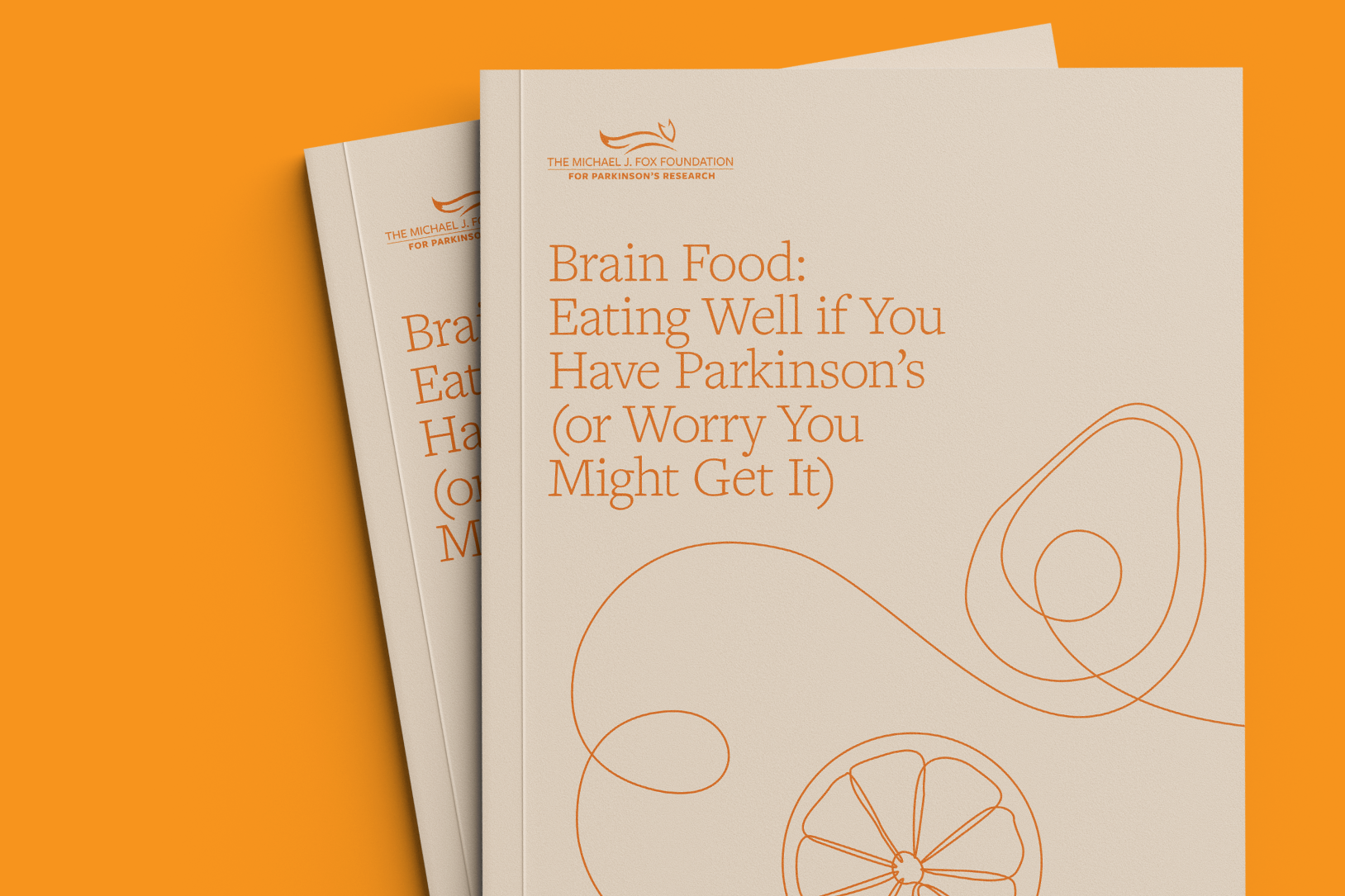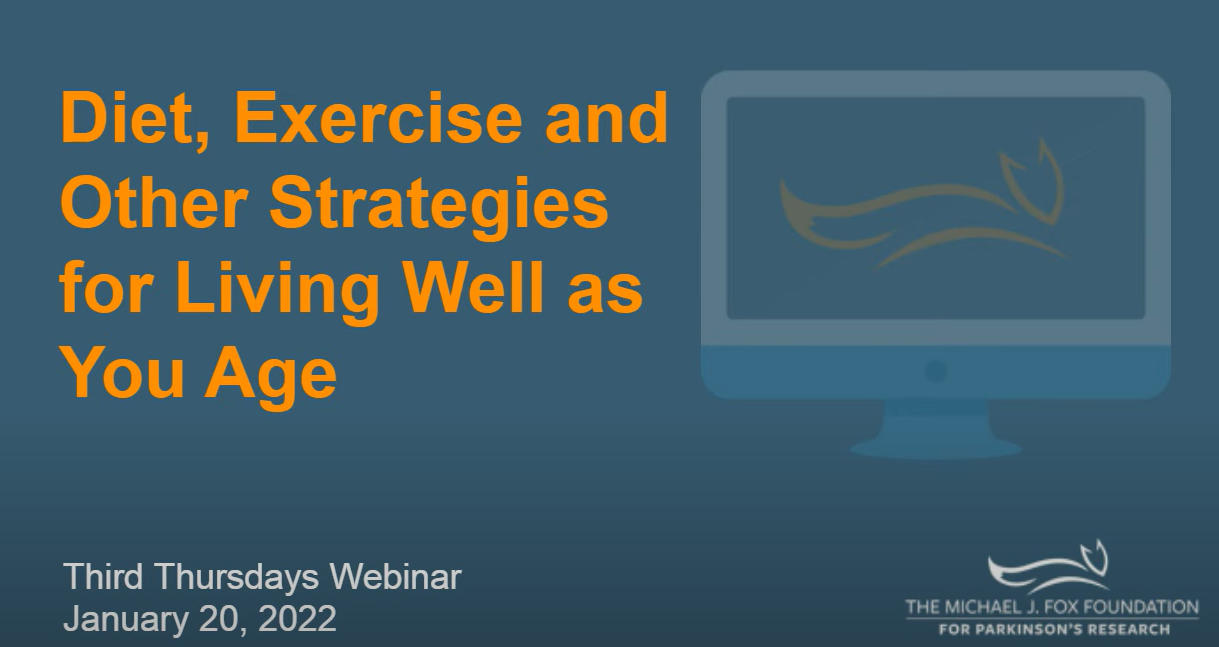Diet & Nutrition
There is no one recommended way to eat with Parkinson’s disease, but a balanced diet full of fruits and vegetables promotes health and well-being for everyone.
One part of a healthy diet is eating foods with antioxidants. These “good for you” molecules help protect cells from stresses such as air pollution, cigarette smoke and even the process of converting food to energy. Antioxidants are found in fruits, vegetables, grains, nuts, dark chocolate and some beverages, such as red wine, coffee and tea.
Brain Food: Eating Well with Parkinson's Guide
Learn how and get tips, recipes, community member hints, and more in our new, free guide, Brain Food: Eating Well if You Have Parkinson’s (or Worry You Might Get It).
Whether you live with Parkinson’s, care about someone who does, worry about the possibility of PD, or simply want to care for your brain as best you can — the guide has something for you.
Diet Considerations in Parkinson's
Nutrition is particularly important in Parkinson’s (PD) for many reasons; the disorder itself often slows transition through the gut and affecting the absorption of medications and nutrients. Patients with PD may have other medical conditions that further put them at risk of malnutrition. Poor nutrition can worsen other conditions such as diabetes and hypertension, which in turn can worsen function in PD. In addition, good nutrition promotes overall brain health and may have some protective benefit with regard to conditions such as strokes and Alzheimer’s disease.
As is true for many aspects of Parkinson’s disease, each person is a little different. You may need to experiment to see what is most effective for you.
Other FAQ's on Diet
Protein Consumption
It is also important to know that because levodopa is an amino acid, it competes for absorption with other proteins. Eating a very proteinic meal would reduce the likelihood of efficiently absorbing levodopa. That’s why it is better to eat carbohydrates and vegetables at lunch and leave meat, cheese and fish for nighttime.
Constipation
Constipation might be a taboo subject, but it is relatively common in Parkinson’s disease. Once again, it can be different for each person, so you may need to try several things. In addition to a well-balanced diet, drink at least eight glasses of water per day, add fibre to your diet and exercise regularly. If you are still experiencing issues speak to your specialist who may recommend other therapies.
Low Blood Pressure
In Parkinson’s, low blood pressure can come from the disease and from some of the medications used to treat it. Low blood pressure can cause dizziness and lightheadedness and can increase walking trouble and risk for falls. As with constipation, the initial treatments are dietary and lifestyle changes. A few suggestions are drinking at least eight glasses of water per day, adding salt to your diet, avoiding hot or alcoholic drinks and exercising regularly
Swallowing Problems
Difficulty swallowing, called dysphagia, can happen at any stage of Parkinson, ranging from mild to severe. Signs and symptoms may include difficulty swallowing certain foods or liquids, coughing or throat clearing during or after eating/drinking, and feeling as if food is getting stuck. Learn More
Gut Health
Clinical and research data suggest the gut is involved in Parkinson’s (PD). Constipation, a prominent non-motor symptom associated with PD, occurs years before diagnosis in many people. Alpha-synuclein, the sticky protein that clumps in the brains of people with PD, is present in the gut. Research has also shown differences in gut bacteria in those with Parkinson’s compared to those without.
This leads many to believe that disease could start in the gut and travel to the brain. If true, this could be an optimal place for early diagnosis and intervention.
It might be a benefit to add a probiotic to your diet to assist in keeping your digestive system healthy by balancing the “good” and “bad” bacteria. Prebiotics help supply the “good” gut bacteria with energy.
Webinar: Diet, Exercise and Other Strategies for Living Well as You Age
In this webinar from our partners at the Michael J. Fox Foundation expert panellists discuss ways to live well as we start the new year. We share practical tips for eating healthy, exercising, building a care team and boosting brain health.



